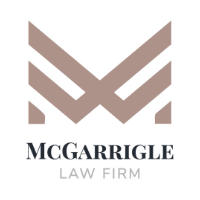Southeastern White Collar Crime Lawyer, Pennsylvania
Sponsored Law Firm
-
 x
x

Click For More Info:
-
James E. Crawford, Jr. & Associates, LLC
999 Corporate Blvd. Suite 100 Linthicum, MD 21090» view mapCriminal Defense, Divorce & Family Law Move Forward With Confidence
Our Firm's team of family, criminal, and business lawyers understand that each case presents unique challenges and must be met with equally unique approaches.
800-789-9220
Daniel McGarrigle
✓ VERIFIEDMilitary & Veterans Appeals, White Collar Crime, DUI-DWI, Criminal
Attorney Daniel McGarrigle is an aggressive advocate and experienced litigator; he has tried hundreds of cases and handled all types of criminal matte... (more)
FREE CONSULTATION
CONTACTAlyssa Kusturiss Poole
Wills & Probate, White Collar Crime, Criminal, Corporate, Personal Injury
Status: In Good Standing Licensed: 21 Years
Andrew P Reeve
Mass Torts, Litigation, Lawsuit & Dispute, White Collar Crime
Status: In Good Standing Licensed: 14 Years
Arik T. Benari
DUI-DWI, White Collar Crime, Misdemeanor, Felony
Status: In Good Standing Licensed: 24 Years
FREE CONSULTATION
CONTACTArthur T. Donato
White Collar Crime, Criminal, Civil Rights, Administrative Law, Business
Status: In Good Standing Licensed: 44 Years
Arthur T. Donato
Civil Rights, White Collar Crime, Administrative Law, Criminal, Business
Status: In Good Standing
Ashly Ryan McGarity
Visa, DUI-DWI, Domestic Violence & Neglect, Firearms, White Collar Crime
Status: In Good Standing
David Michael Iannucci
Internet, White Collar Crime, Criminal, Corporate
Status: In Good Standing Licensed: 17 Years
 James Crawford, Jr. Linthicum, MD
James Crawford, Jr. Linthicum, MD Practice AreasExpertise
Practice AreasExpertise

